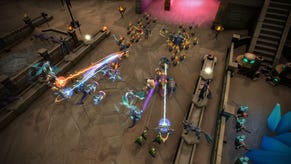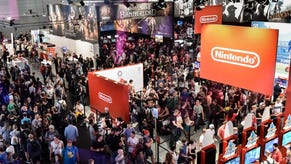Localizing pays off… in some places - Tiny Build CEO
Alex Nichiporchik says Punch Club versions for Western Europe were worth it, but Brazil localization only boosted piracy
Localizations can help games succeed around the world, but not all markets react to localizations the same way. That was one lesson Tiny Build CEO Alex Nichiporchik took from the launch of the studio's recent Punch Club.
In a post on the studio's site, Nichiporchik said that the developer wanted to track how many copies were pirated so it could see what impact localizing a game for a specific market would have on that number. Using Unity Analytics and a third-party tool, the studio tracked all activations and subtracted the number of legitimate sales per platform (plus a further 10% to account for people activating a legitimate copy on multiple devices) to come up with a rough picture of how frequently the game was pirated.
The (perhaps expected) findings were that the game was massively pirated. Tiny Build sold 300,000 legitimate copies of Punch Club on PC and mobile platforms, while 1 million players pirated it on PC and another 500,000 pirated it on mobile.
When Tiny Build looked at the numbers by geography, it made some interesting findings. First, the Chinese market didn't seem to care whether the game was localized or not; the English version of Punch Club was being pirated there from launch.
"Meanwhile as soon as we added Portuguese, Brazil skyrockets in number of installs... but not in number of sales," Nichiporchik said. "Brazil likes to pirate localized games."
On the day of the Portuguese localization's launch, Tiny Build saw 11,627 pirated copies activated in Brazil, compared to 373 legitimate copies. Looking through their numbers a bit further, Nichiporchik concluded that Germany, France, and the United States had the most favorable ratios of customers to pirates.
"While it's difficult to fight piracy--and most DRM-enforced ways are horrible for the paying customers--it's hard to deny it has an impact," Nichiporchik said. "Looking back I believe what we should've done is enabled cross-platofrm saves on launch. This way people who pirate the PC version may have converted better into buyers on mobile or vice-versa."
He added, "The most interesting conclusion though is localization and its impact. Punch Club clearly shows that localizing games to Western European languages pays off, and has a very low piracy rate."
This doesn't mean Tiny Build will stop localizing its games for countries like Russia and Brazil. In comments on Nichiporchik's article, Tiny Build creative director Tom Brien said, "We won't be using this data as an excuse to step backwards in our localization effort, but we do hope it guides smaller developers with lower budgets in taking their first step into localization."








